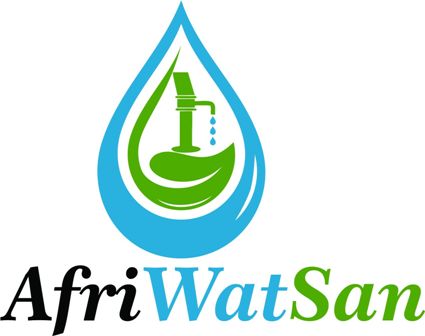Between September and November 2017, the AfriWatSan team in Dakar were busy undertaking field surveys in the Cape Verde peninsula to assess groundwater quality and levels in the Thiaroye aquifer. The team also assessed potential sites for the construction of integrated research observatories to monitor the impact of on-site sanitation on shallow groundwater. The research team consisting of PI Cheikh Gaye; AfriWatSan PhD students; Abdoulaye Pouye; Mor Talla Diaw; and MSc Students; Djim Mouhamadou Lamine Diongue; Alpha Diao, and supported by Moussa Sow (technician); sampled 34 shallow wells and boreholes, and downloaded high-frequency observations of groundwater levels from recently installed dataloggers (In Situ AquaTroll 200, Rugged Troll 100).
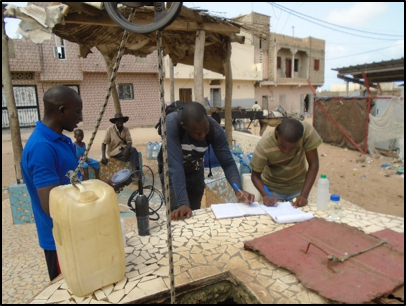
Students capturing water quality measurements in the field
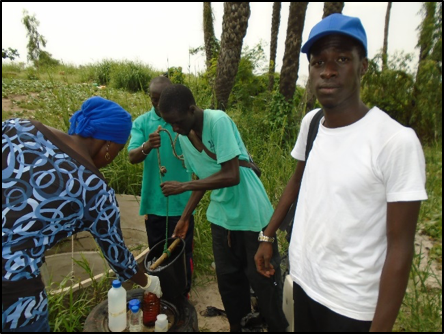
PhD student Momar Talla Diaw and other students set about collecting water samples from the boreholes under the supervision of PI Gaye and Moussa Sow
In the field, the team made on-site measurements of water quality (EC, salinity, pH, T, Turbidity, dissolved oxygen) using a multi-parameter probe (HydroLab Quanta). Shallow groundwaters were observed to be alkaline (mean pH 8) and slightly saline (mean EC 1800 μS/cm) with detectable concentrations of dissolved oxygen. Data downloaded from deployed dataloggers shown in the graphs below show a distinct rise in very shallow groundwater levels in response to the onset of the rainy season as well as a stabilisation of a trend toward increasing EC.
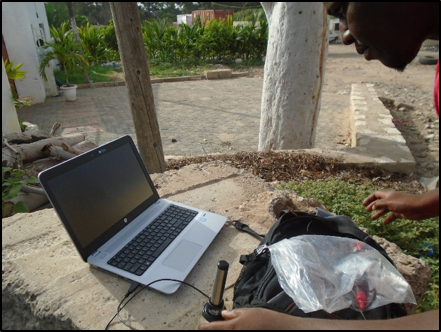
Downloading the water level data from the loggers installed in boreholes in the field
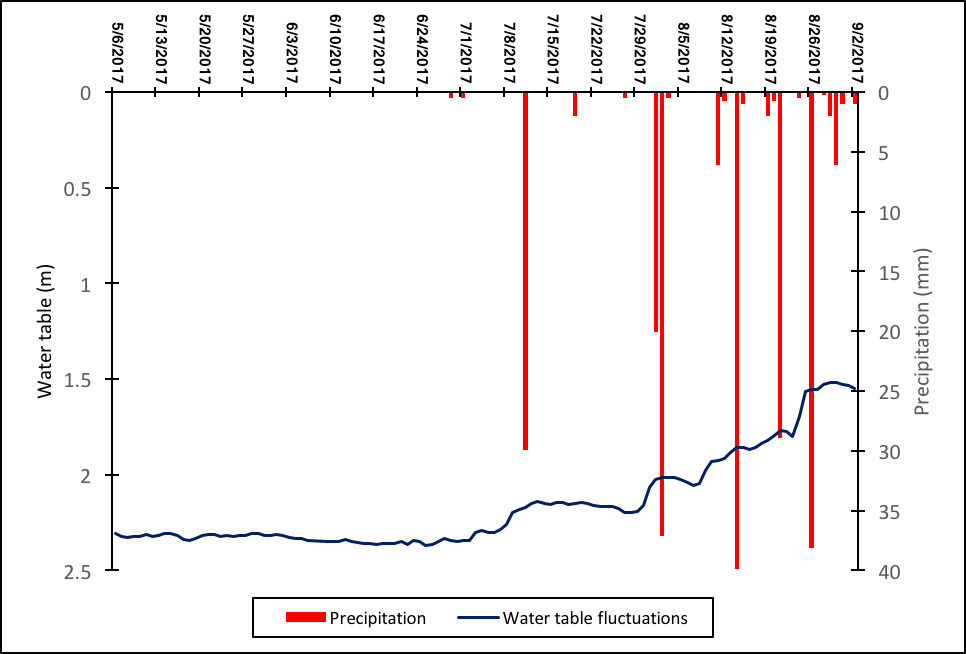
The graph shows a distinct rise in very shallow groundwater levels in response to the onset of the rainy season
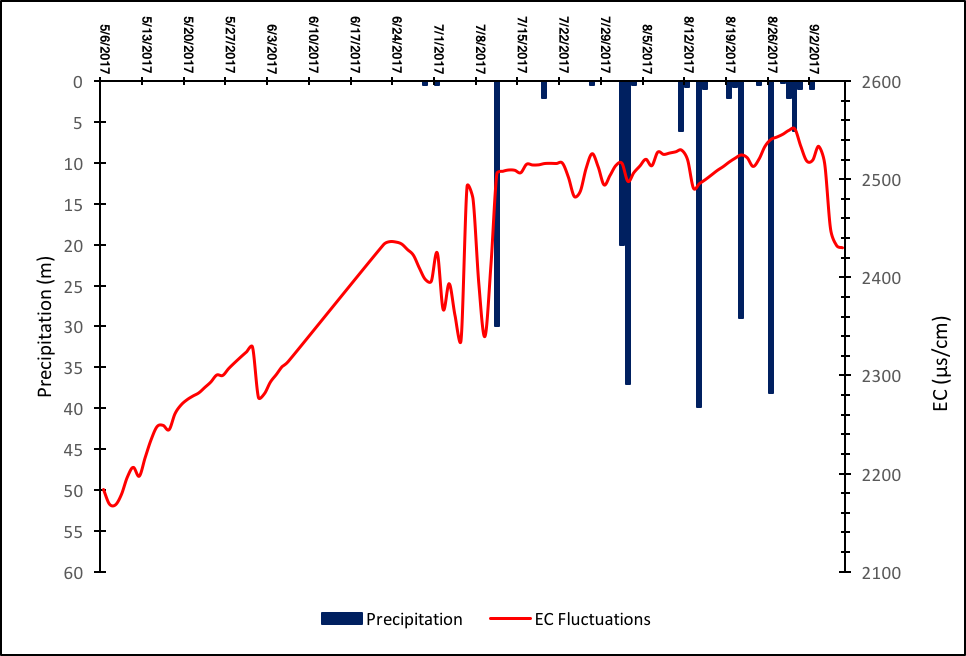
Here the graph shows a a stabilisation of a trend toward increasing EC
It was AfriWatSan PhD student Abdoulaye Pouye who assessed sites to monitor the impact of on-site sanitation on shallow groundwater sites. Potential sites included primary schools, Thiaroye military camp, and private houses. The assessment noted that households mainly use septic tanks, though use of pit latrines was noted in one area of the Thiaroye aquifer (Guediawaye in Baghdad district); schools generally employ both septic tanks and pit latrines. Abdoulaye also observed evidence of rising groundwater-levels as well as dilapidated and leaking septic tanks since those that are functioning are rarely pumped leading to problems of overflowing. Subsequent to this visit, the AfriWatSan team then visited additional schools, an experiment site (ISRA/CIRAD), and a military camp with Dr Frederic Feder, a researcher from CIRAD (Centre for International Cooperation in Agricultural Research for Development), to review all possible options for siting AfriWatSan observatories in the Thiaroye aquifer of Dakar.
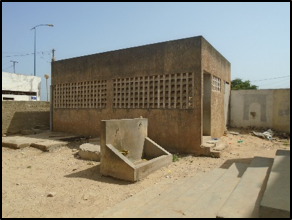
Ahmet Sow School: potential site to monitor the impact of septic tanks on groundwater quality
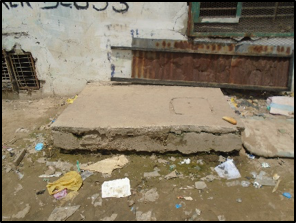
Household septic tanks are rarely pumped out and lead to problems of overflowing according to the assessment
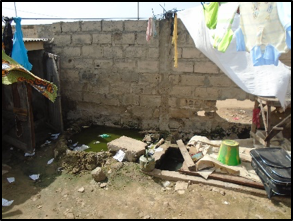
A household septic tank in sub-optimal condition
